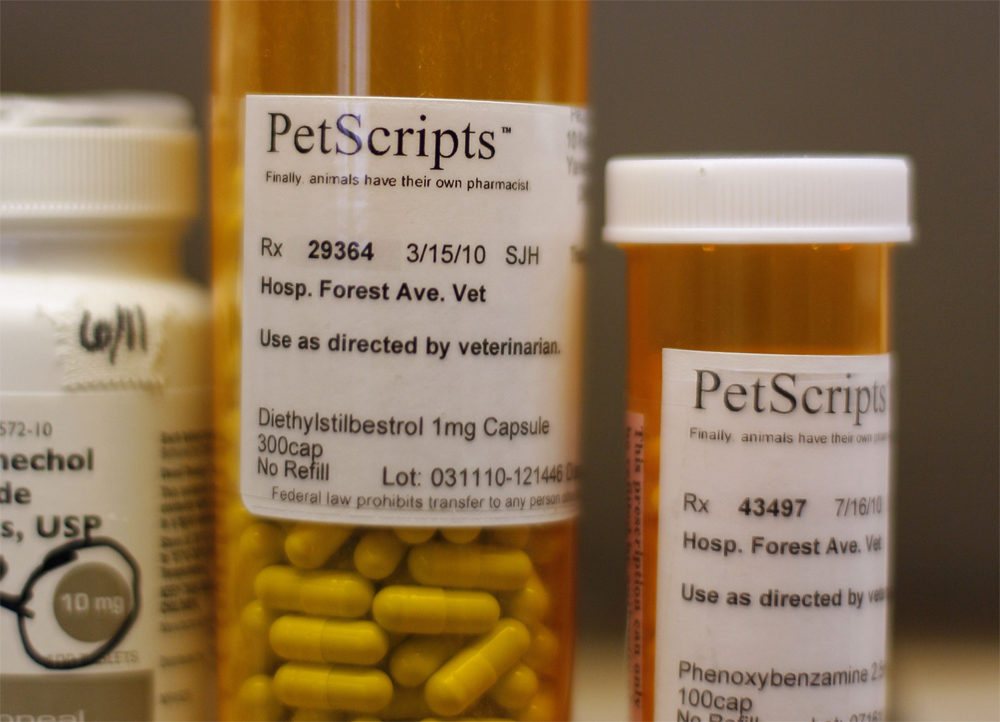How to Export Packaged Medicaments from Nigeria: A Guide for Healthcare Professionals
How to Export Packaged Medicaments from Nigeria: A Guide for Healthcare Professionals
It is common for healthcare professionals to be asked by patients if they can purchase medicines from abroad, and it is also common for doctors and pharmacists to see many patients who have already bought medication from other countries, or those who are interested in buying medications that are not available locally. This article provides a guide for professionals on the process of exporting packaged medicaments from Nigeria.
What is an import permit?
An import permit is a document issued by Nigeria Customs Service authorizing the importation of goods into Nigeria. The Customs service issues an import permit to the applicant after they have satisfied all regulatory requirements.
To obtain an import permit, the following documents are required:
-Application form
-Import permit application fee
-Request letter from the applicant
-Copy of the applicant’s passport
-Copy of license to practice in Nigeria
-Application form for import permit for packaged medicaments
-Package list
-Invoice for the medicines
-Packing list for the medicines
-Medical certificate for the medicines
-Copy of invoice for the packaging materials
How to get an import permit
The import permit is the document that authorizes the export of medicines from Nigeria. It is issued by the Nigerian Customs Service (NCS) and specifies the number of packs of medicines that are authorized for export. The import permit is usually valid for six months, but it can be renewed if necessary.
The process to get an import permit starts with filling out an application to the Nigerian Customs Service. The application includes information about the type of medicines that are being exported, the quantity, and their destination country. The application should be accompanied by a copy of the registered letter of consent from the country where the medicines are being exported.
Afterwards, customs will issue an import permit to be taken to the port of entry. The permit should be endorsed at the port of entry before the shipment leaves Nigeria. The endorsement must include a declaration that all taxes due on export have been paid, that the foreign country has granted an import license, and that all other requirements set out by law have been met.
What are the requirements for exporting medicines?
The regulations and requirements for exporting medicines and medical devices will vary and depend on the country of export and the type of medicine. Requirements for exporting medicines from Nigeria can be summarized as follows:
– A registered pharmacist or doctor is needed to sign the export permit
– The authorised pharmacist or doctor will need to ensure that the medicine is packaged as per regulations, such as ensuring that appropriate labelling is on the packaging.
– A new export permit will need to be issued for each shipment of medicine
– A new export permit will need to be issued for each shipment of medicine
– A new export permit will need to be issued for each shipment of medicine
– A new export permit will need to be issued for each shipment of medicine
– A new export permit will need to be issued for each shipment of medicine
– A new export permit will need to be issued for each shipment of medicine
– A new export permit will need to be issued for each shipment of medicine
– A new export permit will need to be issued for each shipment of medicine
– A new export permit will need to be issued for each shipment of medicine
– A new export permit will need to be issued for each shipment of medicine
– A new export
You must be licensed by the Nigerian regulatory body, the National Agency for Food and Drug Administration and Control (NAFDAC)
In order to export packaged medicines from Nigeria, you must first obtain a license from the Nigerian regulatory body, the National Agency for Food and Drug Administration and Control (NAFDAC). The application process is outlined below:
– The applicant should obtain a completed NAFDAC Application Form from the NAFDAC site.
– The applicant should obtain a copy of a valid registration certificate from the Nigerian Industrial Property Office.
– The applicant should obtain a copy of a valid license from the Nigerian Copyright Commission.
– The applicant should obtain a copy of a valid import permit from the Nigerian Customs Service.
– The applicant should obtain a copy of a valid export permit from the Nigerian Federal Ministry of Trade and Investment.
– In addition, the applicant should obtain a letter from the original exporter confirming that he or she will export packaged medicines that have been supplied to an Indian importer, as well as copies of the original exchange documents to prove that the original exporter has supplied packaged medicines to an Indian importer.
You must have a Permit-to-Import Drugs from NAFDAC
You must have a Permit-to-Import Drugs from the Nigerian Agency for Food, Drug Administration and Control (NAFDAC) to import medicines into Nigeria. This is only applicable if you are importing the medication in your personal capacity.
Items required for export
Provide a copy of the license and registration certificate
Brief the Nigerian Customs Service and National Agency for Food and Drug Administration and Control (NAFDAC) of the volume and nature of the drugs to be exported.
Present a copy of the International Pharmaceutical Excipients Council (IPEC) certificate
Present a copy of the ASEAN Qualified Person (AQP) certificate
Obtain a letter from the Nigerian Embassy or High Commission in the country of destination for onward transmission to the regulatory authorities there.
Provide a copy of the list of medications to be exported
Letter of Proposal
The package of medicines must be accompanied by a letter of proposal stating the quantity, specifications and brands of the medicines to be exported. The letter should also include a photo of the patient, their name, identity card number and telephone number for verification purposes. The letter should be addressed to the Ministry of Health, through the office of the head of the local government in your state. The letter should include a statement on how the medicines will be used if they cannot be used in Nigeria and an estimate of their market price.
Once approved, the ministry will issue a permit and you can proceed with the package delivery. You will also need to fill out an export declaration form that will instruct you on how to fill it out. The form must include information on the quantity, specifications and brands of the medicines to be exported, as well as a photo of the patient, their name, identity card number and telephone number for verification purposes. You will also need to provide a statement on how the medicines will be used if they cannot be used in Nigeria and an estimate of their market price.
Bill of Lading
A bill of lading is a legally binding document for cargo, which is used as the basis for export and import transactions. It serves as a contract between the shipper and the receiver of goods.
The bill of lading specifies the terms of the contract, including the commodity being shipped, the destination of the shipment, the shipper, and more. The bill of lading is an important document to have when exporting packaged medicaments from Nigeria, because it will allow you to get through customs.
You will need to fill out a bill of lading for your shipment. It is important to gather information about the shipment before filling out anything, including:
• Commodity
• Quantity
• Destination
• FOB Port
• Date
• Terms
The last four points are included on the bill of lading template.
Packing List
The packing list for packing medications for export should include all of the following:
–
– A copy of the order form supplied by the Nigerian regulatory agency,
– A copy of the export declaration form that has been signed by the Nigerian regulatory agency,
– Packing list that identifies the type and quantity of goods in each package,
– Declaration form to be signed by the export agent and the Nigerian regulatory agency,
– The original invoice for each package.
Importing Packaged Medicaments into Nigeria
It is not permitted to import packaged medicines into Nigeria, which means that health professionals are not able to prescribe these medicines to their patients. However, it is possible to export packaged medicines from Nigeria to other countries, provided that the following requirements are met: the packaging must be the same as the country of export; the name of the drug must be in English or the local language; the name of the country of export must be on the packaging; and the exporter must have a license for exporting medicines.
It is also necessary to ensure that the package is sealed, and that it does not have any hidden defects. The exporter should have a license for exporting medicines, and they should provide this information to Nigerian Customs Service before any export.
The exporting process will vary depending on the type of medicine being exported. For instance, if a medicine is being exported by an individual with a license for exporting medicines, then they would first have to provide Nigerian Customs Service with a copy of their license before any export. If, instead, a company or an organization is importing medicines, they will first have to provide Nigerian Customs Service with a copy of their license before any export.
Both individuals and organizations must also provide Nigerian Customs Service with a copy of
Conclusion
As always, it is important to know the drugs laws in Nigeria before giving out advice to patients. This article is written by physicians in Nigeria, but it does not provide legal advice for Nigerian physicians.
The article concludes that the process of exporting packaged medicines from Nigeria is not hard if you follow the steps provided. The process of importing these medicines will be regulated by the Nigerian regulatory authorities, and it will be importable based on the type of medicine.
To summarize, the process of exporting packaged medicines from Nigeria includes:
– Understanding which countries are authorized to import packages from Nigeria
– Understanding which type of medicines are allowed to be imported
– Obtaining an import permit for imported packages
– Fulfilling all documentation requirements
– Obtaining a license for the exported packages
– Completing inspection in Nigeria.








LEAVE A COMMENT
You must be logged in to post a comment.